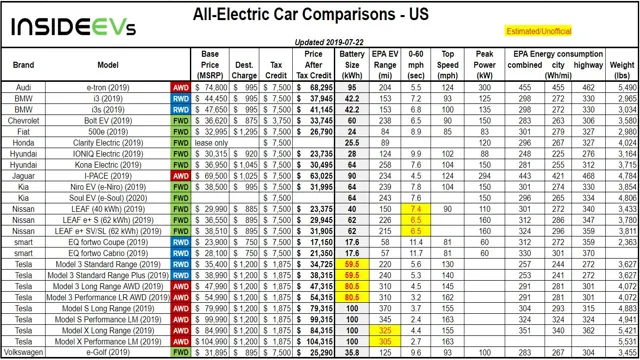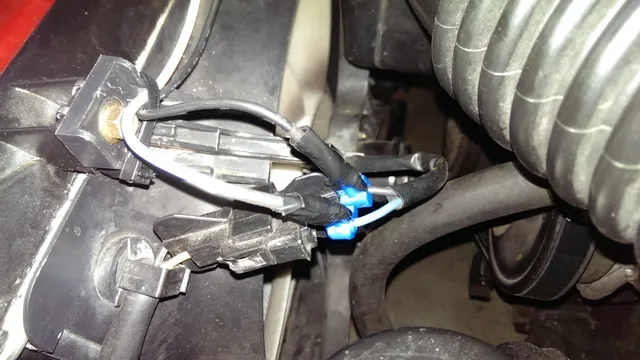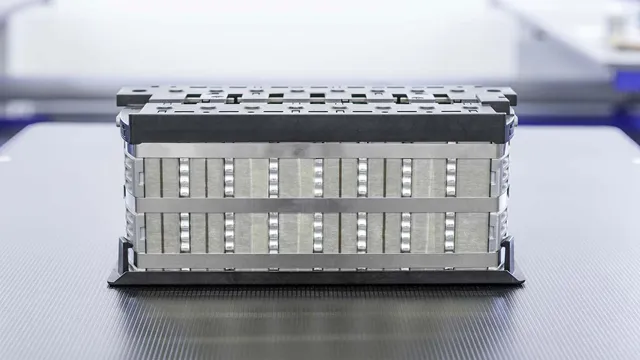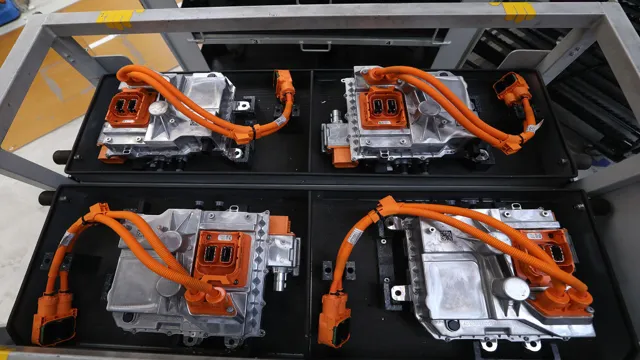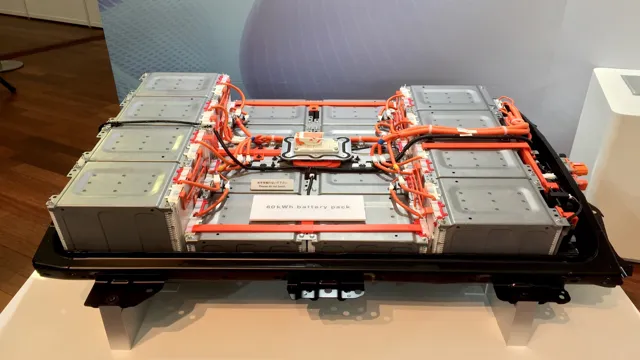Electric Car Battery Battle: A Comprehensive Comparison of Sizes
Are you considering purchasing an electric car but unsure about battery sizes? Electric cars are becoming increasingly popular as people become more environmentally conscious and want to save money on fuel costs. However, one of the main concerns with electric cars is range anxiety, which is the concern of not having enough battery power to complete a journey. This is why it is essential to compare battery sizes of different electric cars to determine which one will suit your needs best.
In this blog, we will compare the battery sizes of various electric cars and discuss their range, charging times, and overall performance. Buckle up and get ready to learn about the advantages and disadvantages of different battery sizes in electric cars!
Why Battery Size Matters
When it comes to electric cars, battery size matters a lot. In fact, it can make all the difference in terms of how far you can go on a single charge. A battery’s capacity is measured in kilowatt-hours (kWh), and the larger the battery, the more energy it can store.
This means that electric cars with bigger batteries generally have longer driving ranges. For example, the Tesla Model S Long Range has a battery size of 100 kWh, while the Nissan Leaf has a battery size of 40 kWh. This means that the Model S can travel much further on a single charge than the Leaf.
However, larger batteries also mean heavier cars and higher costs. So, finding the right battery size for your needs will depend on your budget and how far you need to travel on a regular basis. When comparing electric cars, it’s important to consider the battery size and how it will impact your driving experience.
Range and Driving Distance
When it comes to electric vehicles, one of the most important factors to consider is the battery size. Not only does it affect the range of the car, but also the driving distance as a whole. The larger the battery, the further an EV can travel without needing to be charged.
This is why choosing a car with a battery that fits your driving needs is crucial. For example, if you have a long daily commute or often take road trips, a larger battery will give you the peace of mind to drive without having to constantly worry about running out of power. It’s also important to consider the charging infrastructure in your area, as a larger battery may take longer to charge than a smaller one.
In the end, choosing the right battery size for your lifestyle is crucial to fully enjoy the benefits of driving an electric vehicle.
Charging and Convenience
When it comes to the convenience of charging your electronic devices, one factor that always comes into play is the size of the battery. A larger battery means longer battery life, which translates to less time spent charging and more time using your device. This is especially important for people who rely heavily on their phones and need them to last all day.
But larger batteries also typically mean a bulkier device, which may not be as comfortable to carry around. It’s a trade-off between convenience and practicality, and it’s up to each individual to decide what’s more important to them. Ultimately, choosing a device with a battery size that meets your needs can go a long way in improving your overall charging experience.
Top Electric Cars and Their Battery Sizes
When it comes to choosing an electric car, one of the most important factors to consider is the battery size. This directly impacts the range that the vehicle can travel before it needs to recharge. The Tesla Model S is a popular option with a battery size of 100 kWh, giving it a range of up to 373 miles.
The Nissan Leaf, on the other hand, has a smaller battery at 40 kWh and a range of up to 150 miles. The Chevrolet Bolt has a battery size of 66 kWh, offering a range of up to 259 miles. It’s important to note that battery size isn’t the only factor that affects a car’s range, as factors like driving habits and temperature can also play a role.
Ultimately, choosing an electric car with the right battery size for your needs is crucial in ensuring an optimal driving experience without worrying about range anxiety.
Tesla Model S: Longest Range
One of the most important factors to consider when buying an electric vehicle is the battery size, as it directly affects the car’s range. Among the top electric cars, the Tesla Model S stands out with the longest range. Thanks to its 100 kWh battery pack, the Model S can travel up to 402 miles on a single charge, making it an excellent option for long-distance trips.
This battery pack is also used in the high-performance Tesla Model S P100D, allowing it to accelerate from 0 to 60 mph in just 4 seconds. Other electric cars with impressive battery sizes include the new Ford Mustang Mach-E with a 9
8 kWh battery, the Audi e-tron with a 95 kWh battery, and the Porsche Taycan with a 94 kWh battery. When choosing an electric car, it’s essential to consider the battery size and range to ensure it meets your needs and driving habits.
Chevrolet Bolt: Affordable Option
When it comes to electric cars, one of the biggest concerns is their battery size and range. It can be daunting to commit to a vehicle that may not be able to cover all your daily transportation needs. However, the Chevrolet Bolt is an affordable option for those seeking a reliable electric car with enough range for regular use.
With a 66 kWh battery, the Bolt can go up to 259 miles on a single charge, which is more than enough for most drivers. Plus, with its spacious and comfortable interior, the Bolt offers a practical and convenient experience. So, if you’re considering making the switch to electric, the Chevrolet Bolt is definitely a car worth considering.
Nissan Leaf: Popular Choice
The Nissan Leaf has been a popular choice among electric car enthusiasts for its impressive battery size and reliable performance. With a battery capacity of up to 40 kWh, the Leaf provides a range of up to 150 miles, making it a great option for daily commutes and city driving. However, the Leaf also offers an upgraded battery pack with a capacity of 62 kWh, which boosts its range up to 226 miles.
This larger battery pack is perfect for longer road trips and provides a more confident driving experience for those who want to take their electric car on extended journeys. Overall, the Nissan Leaf is a top choice for those who want an electric car with a large battery and reliable performance.
Factors to Consider When Choosing Battery Size
When it comes to choosing the right battery size for your electric car, there are some factors that you need to consider. One of the first things to think about is the range that you need. If you only use your car for short commutes, you may not need a battery with a large capacity, but if you frequently drive long distances, you will want a battery with a higher range.
Another consideration is the charging infrastructure in your area. If there are plenty of charging stations available, you may not need a battery with a very large capacity. Additionally, you should consider the weight of the battery and how it will affect your car’s performance and handling.
Ultimately, the battery size you choose will depend on your specific needs and driving habits. By comparing different battery sizes available, you can make an informed decision that works for you and your electric car.
Budget and Affordability
When choosing the right battery size for your device, there are a few factors to consider, especially if you want to stay within your budget. First and foremost, it’s crucial to know how much power your device requires and how long you need it to last. This will determine the overall capacity of the battery you need.
Another important factor is the type of battery. Lithium-ion batteries are the most common due to their high energy-to-weight ratio, but they are also more expensive. On the other hand, alkaline batteries are more affordable, but they have a shorter lifespan and lower energy density.
Lastly, you may want to consider rechargeable batteries. While they may have a higher upfront cost than disposable batteries, they can save you money in the long run as they can be recharged numerous times. Overall, choosing the right battery size can significantly impact your device’s performance and your wallet, so it’s important to weigh all of your options before making a decision.
Expected Use and Driving Habits
When choosing a battery size for your electric vehicle, it’s important to consider your expected use and driving habits. Factors that can impact your decision include the distance of your daily commute, the availability of charging stations in the areas you frequent, and whether or not you plan to take long road trips. If you’re looking for a vehicle mainly for city driving, a smaller battery may suffice.
However, if you regularly take longer trips, you may want to opt for a larger battery capacity to avoid range anxiety. It’s also important to consider your driving habits and the terrain you’ll be driving on. If you frequently drive up hills or in stop-and-go traffic, you may require a larger battery to offset the impact on your range.
Ultimately, the best choice will depend on your individual needs and preferences, so take the time to research and compare options to make an informed decision.
Conclusion: Finding the Right Battery Size for You
In conclusion, the size of a battery for an electric car is like the heart of a runner. Just as a runner needs a strong and durable heart to keep pumping blood, an electric car needs a powerful and long-lasting battery to keep driving. Of course, just as different runners have different levels of fitness, different electric cars require different sized batteries.
But no matter the size, the battery is always at the center of the action, helping to power us towards a cleaner, more sustainable future.”
FAQs
What is the average battery size of an electric car?
The average battery size for an electric car is around 60 kWh.
How does the battery size affect the range of an electric car?
Generally, the larger the battery size, the longer the range of the electric car. However, other factors such as driving style and weather conditions can also affect the range.
Can the battery size of an electric car be upgraded?
In some cases, it is possible to upgrade the battery size of an electric car. However, this may depend on the make and model of the car.
How does the battery size of an electric car compare to that of a traditional gasoline car?
The battery size of an electric car is typically much larger than that of a traditional gasoline car. This is because electric cars require larger batteries to store the energy needed for driving.
